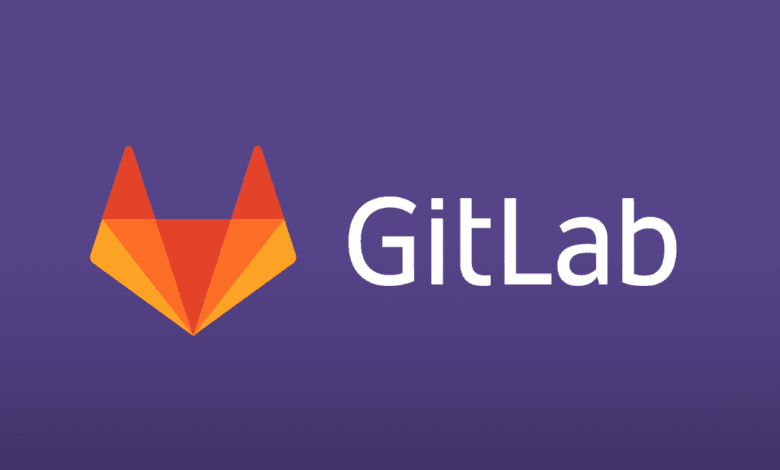
Totally Science GitLab – An Overview
In recent years, the integration of technology and scientific research has opened up new possibilities for collaboration and knowledge sharing. One such groundbreaking platform is Totally Science GitLab, a powerful tool that brings together scientists and researchers from around the world to collaborate on projects, share code, and accelerate scientific discoveries.
In this article, we will explore the features and benefits of Totally Science GitLab, highlighting how it is transforming the landscape of collaborative scientific research.
Version Control for Science
At its core, Totally Science GitLab is a web-based version control system that allows scientists to track changes in their projects and collaborate effectively. By leveraging the power of Git, an open-source distributed version control system, researchers can easily manage their code, datasets, and documents. This enables scientists to work together seamlessly, ensuring transparency, reproducibility, and efficient knowledge sharing.
Collaboration and Community Building
One of the key strengths of Totally Science GitLab is its emphasis on fostering collaboration and community building. The platform provides researchers with a centralized hub where they can create and manage projects, invite collaborators, and contribute to shared repositories. By encouraging open collaboration, scientists can harness the collective intelligence of the community, accelerate their research, and drive innovation.
Issue Tracking and Project Management
Scientific research often involves complex projects with multiple contributors and diverse tasks. Totally Science GitLab offers a comprehensive issue-tracking and project management system, enabling researchers to organize and prioritize their work effectively. With features like task assignments, milestones, and progress tracking, scientists can streamline their workflow, ensure accountability, and achieve research milestones efficiently.
Continuous Integration and Testing
To ensure the reliability and quality of scientific code, Totally Science GitLab integrates robust continuous integration and testing capabilities. Scientists can set up automated testing frameworks to validate their code and ensure that it meets predefined criteria. This feature enhances code stability, minimizes errors, and allows researchers to focus more on analyzing results and driving scientific breakthroughs.
Access Control and Security
In the realm of scientific research, data security and privacy are paramount. Totally Science GitLab provides a range of access control mechanisms, allowing researchers to define who can access and modify their projects.
Fine-grained permissions ensure that sensitive information remains protected, while still fostering collaboration within trusted circles. Additionally, the platform offers encrypted communication channels, further enhancing data security and confidentiality.
Open Science and Reproducibility
Totally Science GitLab aligns with the principles of open science and reproducibility, empowering researchers to share their work transparently and facilitate knowledge exchange. By making code, data, and methodologies accessible, scientists can validate and reproduce each other’s findings, promoting scientific rigor and advancing the collective understanding of complex phenomena.
GitLab vs. GitHub: Understanding the Differences for Collaborative Development
Introduction: When it comes to version control and collaborative software development, two names stand out: GitLab and GitHub. Both platforms offer powerful tools for managing code repositories, facilitating collaboration, and enabling seamless workflows.
Hosting Options
One fundamental difference between GitLab and GitHub lies in their hosting options. GitLab provides both a cloud-based Software as a Service (SaaS) solution, where the platform is hosted by GitLab, as well as a self-hosted version that allows organizations to install and manage GitLab on their own servers. On the other hand, GitHub primarily operates as a cloud-based platform hosted by GitHub itself, with limited self-hosting options.
Pricing Models
GitLab and GitHub have distinct pricing models. GitLab offers a range of options, including a free Community Edition with essential features, a paid self-managed Enterprise Edition, and a cloud-based SaaS version with various subscription tiers based on the organization’s needs. In contrast, GitHub offers a freemium model with free public repositories but charges for private repositories and additional features through its paid plans.
Integrated DevOps Capabilities
One significant advantage of GitLab is its integrated DevOps capabilities. GitLab provides a comprehensive suite of tools that go beyond version control, encompassing the entire software development lifecycle.
It includes features such as continuous integration/continuous deployment (CI/CD), container registry, issue tracking, project management, and more. While GitHub offers some of these features through its Marketplace integrations, GitLab provides a more cohesive and integrated DevOps experience out of the box.
Access Control and Collaboration
Both GitLab and GitHub offer access control mechanisms, allowing users to manage permissions and collaborate on projects. GitLab provides fine-grained access controls at the group, project, and repository levels, enabling organizations to define access privileges precisely.
GitHub, on the other hand, offers more straightforward access control options, with fewer granular controls compared to GitLab. However, GitHub excels in its vast community and social coding features, making it a popular choice for open-source projects and public collaboration.
Community and Ecosystem
GitHub has a well-established community and ecosystem, with millions of developers and a wide range of open-source projects. It is often the preferred platform for sharing and contributing to open-source software. GitLab, while rapidly growing, has a smaller community by comparison. However, GitLab has gained traction for its robust built-in CI/CD capabilities, attracting organizations that prioritize DevOps and continuous integration workflows.
Conclusion
Totally Science GitLab represents a paradigm shift in collaborative scientific research. By combining version control, collaboration tools, project management features, and robust security measures, this platform equips scientists with the means to accelerate their research, collaborate effectively, and contribute to the global scientific community.
With its emphasis on open science and reproducibility, Totally Science GitLab is revolutionizing the way scientific discoveries are made, unlocking new possibilities for innovation and collaboration in the pursuit of knowledge.